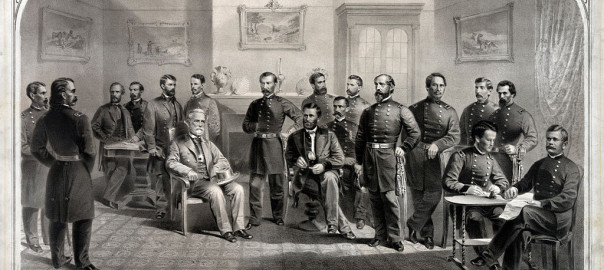A few years ago, I read The Personal Memoirs of Ulysses S. Grant[1]. It has been described as the best book ever written by a US President. While I’ve not read every book by every president, it remains one of the best biographies I’ve ever read. Written as he was dying of cancer, Grant intended the book to provide for his family after his death. [2]
Selective Memory
As I read them, I was struck by how little Grant wrote about his civilian life. Most of the book details Grant’s military career, first as a young West Point graduate in the Mexican-American War, then as a general in the US Civil War. Grant covers the seven years between the end of his first military commission and the start of the Civil War in just a couple of pages. Largely, I’m sure, it was a business decision: Grant and Twain knew that the reading public would be far more interested in Grant’s remarkable military career than in his unremarkable life outside the army or his disastrous presidency.
The contrast, though, between Grant’s descriptions of his Civil War campaigns and his civilian is so great that I wonder if there’s something more going on here. When writing about specific battles, Grant includes incredible detail, including specific formations, landmarks, equipment problems, and logistical issues. He has a novelist’s eye for memorable details, such as the soiled and torn shirt he wore to accept Lee’s surrender at Appamattox – while Lee was dressed in his finest dress uniform.
Those seven civilian years, meanwhile, are glossed over in a handful of paragraphs. I have to wonder if Grant chose not to remember those years in the same level of detail. His Civil War career is one of the most remarkable runs in military history. Grant rose from an obscure volunteer Colonel to commander of Union forces in only four years, and he repeatedly solved military problems that stumped generals with far better credentials.
In contrast, his civilian life was full of disappointment. He failed as a farmer (twice), as a bill collector, and as a leather goods salesman, and he often had to rely on family members for new career opportunities. Midway through the Civil War, Grant had become a committed abolitionist, but as a farmer in Missouri in the 1850s, Grant acquired a slave from his father-in-law and put him to work on his farm Grant moved his family several times during this time period, as he tried to find some way of supporting them.
Is it any wonder that Grant devotes so little of his memoirs to this period of his life?
Imagining Different Memoirs
What if someone had asked Grant to write his memoirs in 1859? What would he have said about himself? A professional soldier with an undistinguished career, retired at 32, now trying to make it – and failing – at the simplest kinds of work. No one, especially not Grant himself, would have imagined that 6 years later, he would be celebrated by half the nation as the greatest of heroes (and hated by the other half as the greatest of villains). Or that 10 years later, he would become the youngest elected President up to that point in American history.
Life can only be understood backwards; but it must be lived forwards. – Søren Kierkegaard
If someone had asked Grant to write his memoirs in 1868, while on his way to an Electoral College landslide victory, what kind of book would it have been? At this point, Grant’s struggles in the 1850s would have appeared to be an anomaly, his earlier miltary career reinterpreted to make his later success more explicable. The arc of his life would have been clear: upward, an inevitable course towards victory in both war and peace.
From his deathbed, however, where he actually wrote his memoirs, Grant’s life appears much more complicated. Historians generally consider his presidency one of the worst, with numerous corruption scandals. After leaving office, Grant’s attempts at business again failed, and he was financially ruined by a Ponzi scheme run by his son’s business partner. Dying of cancer, his memoirs were a last-ditch attempt to capitalize on his celebrity to rescue his family from poverty. I doubt anyone thought the result would be a literary and historical masterpiece.
Grant’s time as a Civil War general, then, is not a part of an upward arc describing his rise; it’s the apogee of his career. Clearly, it always was, but the failures bookending his military success create a stunning contrast.
Further, could Grant’s early failures have created the opportunity for him to become a great military commander? If, say, his leather good’s store had been a terrific success, or if (it pains to write this) he had had success using slave labor on his farm, would he have been so eager to volunteer for service in the Union army?
Which Chapter Is This?
At what stage of your memoirs are you? Is this the time that you will focus on and remember as your greatest success? Or will this time in your life pass by in only a few words during a transitional paragraph? Is this one of your chapters of triumph, or a chapter of disappointment? In job interviews, we are often asked, “Where do you see yourself in five years?” I want to turn that question on its head: In five years, how will you see yourself now? On your deathbed, will this time be a story worth a million dollars, or a chapter that you would rather forget? Your moment of victory, or your failed leather goods store?
Photo Credit: Lee Surrenders to Grant at Appomattox, via the Library of Congress

